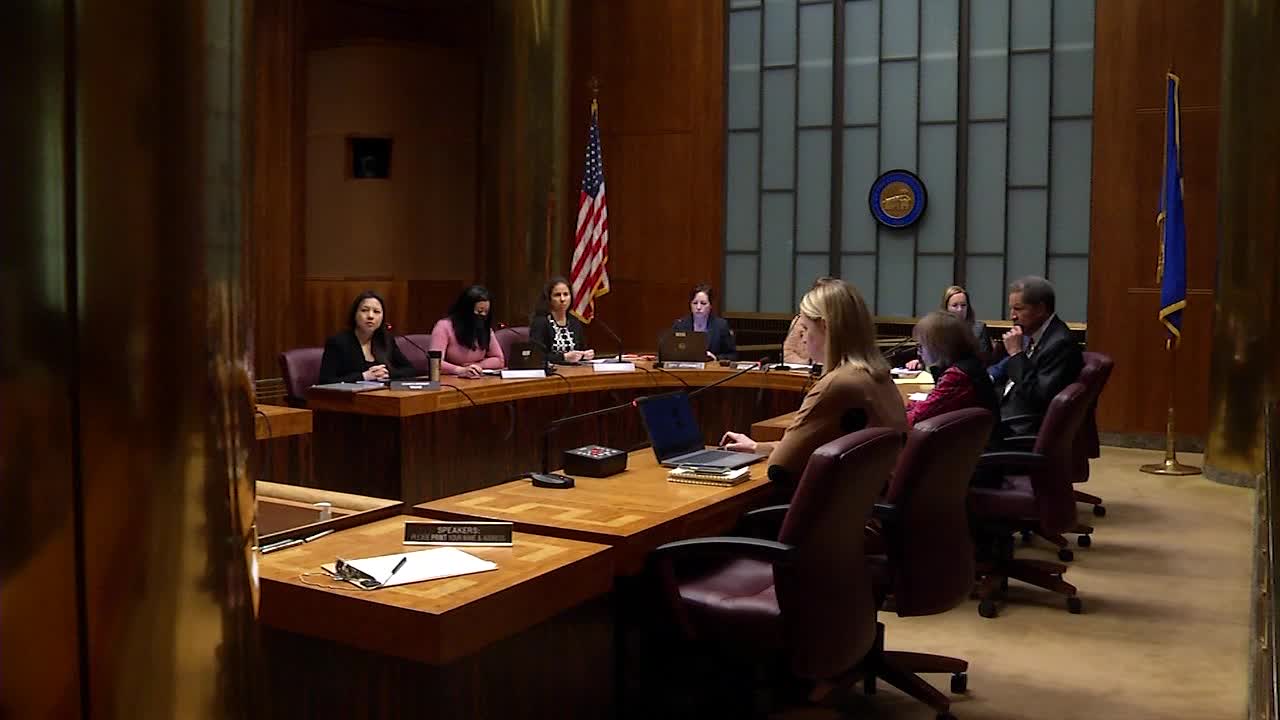St. Paul City Council establishes permanent reparations commission
[anvplayer video=”5155861″ station=”998122″]
The St. Paul City Council is moving forward with an effort to repair harm caused by historical systemic discrimination against Black residents.
Council members voted unanimously Wednesday to create the St. Paul Recovery Act Community Reparations Commission.
“In the end, I think as the family that we are here in Saint Paul and in this country, that there will be some healing and we’ll all be able to see the value in each other,” said Council Member Russel Balenger, who represents Ward 1.
RELATED: St. Paul City Council takes step forward in creating reparations committee
The permanent 11-member group will advise the City Council on how to address the damage caused by systemic racism and “make short, medium and long-term policy, program and budget recommendations to specifically address the creation and sustainment of generational wealth for the American Descendants of Chattel Slavery and to boost economic mobility and opportunity […].”

FILE - The St. Paul City Council convenes on Wednesday, Jan. 4, 2023. (KSTP-TV)
The City Council will also hire a staff person dedicated to this work, with $100,000 budgeted for salary and benefits. The position is expected to be posted this month, along with applications for commission members.
“We are committing St. Paul to never go back but to keep moving forward to the vision of real racial justice,” said Council Member Jane Prince, who represents Ward 7.
In January 2021, the city issued a resolution apologizing, in part, for “systemic discrimination […] perpetrated through redlining and racial covenants, access to housing, environmental injustice and the removal of St. Paul’s Rondo neighborhood.”
A Legislative Advisory Committee was created a few months later, in June of 2021, to lay the groundwork for the St. Paul Recovery Act Community Reparations Commission. The committee presented its proposed ordinance recommendations to the City Council in June 2022 following a year of work, including public meetings.
Committee Co-Convener Trahern Crews described Wednesday’s vote as “just a really exciting moment for us today.”
“It’s rich with history, and we have a lot of work to do,” he added.
Crews started doing community outreach about reparations in 2018. His grassroots effort gained the attention of Council Member Prince and led to the formation of the Legislative Advisory Committee and this permanent reparations commission.
“The St. Paul City Council has taken a step to start addressing the harms that the United States, the state of Minnesota and the city of St. Paul have caused to Black Americans,” Crews said.
Eighty percent of the city’s African American population once lived in the Rondo neighborhood, including Crews’ relatives. Hundreds of homes and businesses were displaced with construction on Interstate 94 started in the 1950s.
RELATED: St. Paul’s Rondo neighborhood, split by I-94, may have a new beginning, one home at a time
“They destroyed not just the physical structures and the businesses, they destroyed our spirit, our cohesiveness,” said Nathaniel Khaliq, whose grandfather had the last home standing in Rondo east of Western Avenue. “They destroyed our safety net and scattered us all around the city.”
He added, “Businesses couldn’t relocate, and many of our residents couldn’t go on to other neighborhoods. Many of us moved four or five times.”
Khaliq was one of several community members who attended Wednesday’s meeting and applauded the council’s vote.
“This is a great day,” he said.
The new commission will advise the council on what reparations to pursue. Crews told 5 EYEWITNESS NEWS while direct cash payments are a priority, systemic changes to support Black businesses and home ownership should also be explored.
Legislative Advisory Committee Member Amber Jones hopes this marks a shift in mindset.
“If we can’t even address the harm, we can never repair it, and the reparations way of life and the way of work allows us to open the conversation,” said Jones. “This is revolutionary work the City of St. Paul is doing, and I hope that every other city in the state — I hope that the State Legislature also takes up on this charge. We can really lead the nation with this work and keep building this momentum.”
Community members are advocating for the passage of the Minnesota Migration Act at the State Capitol.